
Katy Börner is the Victor H. Yngve Distinguished Professor of Engineering and Information Science in the Luddy School of Informatics, Computing, and Engineering, Core Faculty of Cognitive Science, and Founding Director of the Cyberinfrastructure for Network Science Center at Indiana University Bloomington. She is a curator of the international “Places & Spaces: Mapping Science” exhibit that features large-format maps and interactive data visualizations.
She holds an MS in Electrical Engineering from the University of Technology in Leipzig, 1991 and a PhD in Computer Science from the University of Kaiserslautern, 1997. She is a member of ACM and IEEE and is an American Association for the Advancement of Science (AAAS) Fellow, Association for Computing Machinery (ACM), and a Humboldt Research Fellow.

Russel Caflisch is the Director of Courant Institute at New York University. He studied mathematics at Michigan State and Courant. He began his teaching career at Stanford and Courant before joining the mathematics faculty of UCLA in 1989. Dr. Caflisch served on IPAM’s Board of Trustees from 2003 to 2006 and as IPAM’s director from 2008 to 2017. He was an Alfred P. Sloan research fellow and an invited lecturer at the 2006 International Congress of Mathematicians, and is a member of the National Academy of Sciences, AMS, and SIAM as well as fellow of the American Academy of Arts and Sciences. He was a founding member of California NanoSystems Institute. His research interests include materials science, mathematical finance, Monte Carlo methods, kinetic theory, plasma dynamics, fluid dynamics, and PDEs.
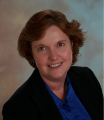
Brenda Dietrich is the Arthur and Helen Geoffrion Professor of Practice in the School of Operations Research at Cornell University. Prior to that, she had a 33 year career at IBM in a field now called analytics and data science. At IBM, she applied data and computation to business decision processes. For over a decade she led the Mathematical Sciences function in the IBM research division, performing basic computational mathematics research and developing applications of mathematics. She was appointed IBM Fellow in 2007, and Vice President in 2008. She has been the Chief Technology Officer and Strategist for IBM’s Business Analytics group, and led Emerging Technologies in the IBM Watson Group. In addition to her IBM work, she has been the president of INFORMS, has served on the Board of Trustees of SIAM, and has been a member of several university advisory boards. She was elected to the National Academy of Engineering in 2014. She holds a PhD in operations research and information engineering from Cornell.
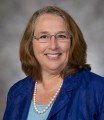
Katherine Ensor is Noah G. Harding Professor of Statistics in the George R. Brown School of Engineering at Rice University. She is director of the Center for Computational Finance and Economic Systems and a fellow of the Kinder Institute for Urban Research, where she oversees the development of the Urban Data Platform, a resource for the greater Houston area. She served as chair of the Department of Statistics from 1999 through 2013. Ensor develops innovative statistical techniques to answer important questions in science, engineering and business with focus on the environment, energy and finance. She is a fellow of the American Statistical Association (ASA) and the American Association for the Advancement of Science and has been recognized for her leadership, scholarship and mentoring. She is Vice President of the ASA and a member of the National Academies Committee on Applied and Theoretical Statistics. She holds a BSE and MS in Mathematics from Arkansas State University and a PhD in Statistics from Texas A&M University.
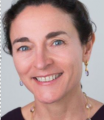
Diana Farrell is an independent director and trustee of various organizations, including eBay, Urban Institute, the National Bureau of Economic Research, the National Academies of Sciences’ Committee on National Statistics and the Institute for Practical and Applied Mathematics. She was the founding President and Chief Executive Officer of the JPMorgan Chase Institute, a think tank for the public good, where she created a legacy of producing and publishing unique data analyses and insights leveraging the bank’s administrative transactions data. Previously, Diana was a Senior Partner at McKinsey & Company, where she served on the Partner’s Evaluation committee, and was the founder and Global Head of the McKinsey Center for Government as well as the Global Head of the McKinsey Global Institute. At various points in her McKinsey career, she was a leader in the Public Sector, the Financial Institutions Sector, and the Strategy practice. Additionally, Diana served in the White House for over two years as Deputy Director of the National Economic Council and Deputy Assistant to the President on Economic Policy. Diana is a member of the Council on Foreign Relations, the Aspen World Economy Group, the Aspen Strategy Group, the Trilateral Commission, and the Bretton Woods Committee. She recently joined the Advisory Committee of the Ford School of Public Policy at the University of Michigan. Diana holds a M.B.A. from Harvard Business School, and has a B.A. from Wesleyan University, from where she was awarded a Distinguished Alumna award and is a Trustee Emeritus.
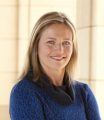
Margot Geertrui Gerritsen is a professor of Energy Resources Engineering at Stanford University and a senior associate dean for educational initiatives in the Stanford University School of Earth, Energy & Environmental Sciences. Her research interests include energy production, ocean dynamics, and sailboat design.
Gerritsen was born in the Netherlands. She earned a master’s degree at Delft University of Technology. She completed her doctorate in 1996 in scientific computing and computational mathematics at Stanford, under the supervision of Joseph Oliger. Between 1996-2001, she was a faculty member in the Department of Engineering Science in Auckland, New Zealand. Gerritsen then worked at the University of Auckland before rejoining Stanford as a faculty member in 2001.
She was named a SIAM Fellow in 2018.

Edray Herber Goins is Professor of Mathematics at Pomona College. He earned a BS in Mathematics and Physics from Caltech in 1994; and a PhD in Mathematics from Stanford University in 1999. Prior to Pomona, Goins was a Professor of Mathematics at Purdue University. He works in the field of number theory, as it pertains to the intersection of representation theory and algebraic geometry.
Goins served as president of the National Association of Mathematicians, Inc., the nationwide organization of African Americans in Mathematics, from 2015-2020. He is the Lead Program Director for the African Diaspora Joint Mathematics Workshop (ADJOINT) at the Mathematical Sciences Research Institute (MSRI). He also serves on the board of the Art of Problem Solving Initiative, Inc., a non-profit organization which seeks to help underserved students find a realistic pathway towards becoming scientists, mathematicians, engineers, and programmers. Goins currently runs a federally-funded Research Experience for Undergraduates (REU) titled Pomona Research in Mathematics Experience (PRiME).

Frank Graziani received a B.S. in physics from Santa Clara University, and a PhD in physics from the University of California, Los Angeles. His thesis work was on the non-perturbative aspects of quantum field theories such as quantum chromodynamics. Frank Graziani was a postdoctoral fellow at the University of Colorado and the University of Minnesota where he worked on cosmology and particle physics. He was a frequent visitor at NASA-Ames Research Center where he worked on exo-planet dynamics and star formation in molecular clouds. Frank Graziani joined Lawrence Livermore National Laboratory in 1989 as a computational physicist. He worked in the fields of radiation transport and plasma physics. Since then, he has held various research and leadership positions at the Laboratory, including, Principal Investigator for two LDRD-Strategic Initiative projects, LLNL lead for the National Boost Initiative and Associate Division Leader for computational physics. He is currently the director of the High Energy Density Sciences (HEDS) Center at LLNL. He has won four DOE Defense Program Awards of Excellence (1999, 2002, 2013, and 2017), the LLNL Director’s S&T Award (2012), Distinguished Member of the Technical Staff (2017), and selected as a Fellow of the American Physical Society (2023) . Most recently, Frank has become involved in quantum computing. In particular the uses of quantum computing to solve problems in HEDS-including radiation transport, hydrodynamics, along with problems related to the quantum many-body problem.

Louis J. Gross is a Chancellor’s Professor Emeritus and Emeritus Distinguished Professor of Ecology and Evolutionary Biology and Mathematics and Director of The Institute for Environmental Modeling at The University of Tennessee, Knoxville. He was the founding Director of the National Institute for Mathematical and Biological Synthesis, a National Science Foundation-funded center to foster research and education at the interface between math and biology. He completed a B.S. degree in mathematics at Drexel University and a Ph.D. in applied mathematics at Cornell University, and has been a faculty member at UTK since 1979. His research emphasizes applications of mathematics and computational methods in many areas of ecology, including disease ecology, landscape ecology, spatial control for natural resource management, photosynthetic dynamics, and the development of quantitative curricula for life science undergraduates. He has served as Program Chair of the Ecological Society of America, President of the Society for Mathematical Biology, Treasurer for the American Institute of Biological Sciences and twice as President of the UTK Faculty Senate. He is the 2006 Distinguished Scientist awardee of the American Institute of Biological Sciences and is a Fellow of the American Association for the Advancement of Science and of the Society for Mathematical Biology. As the volunteer sound engineer for over thirty years at the Laurel Theater, he has engineered and recorded more than a thousand performances of traditional music. His live recordings have been included on over a dozen albums, and his free annual workshops have trained several hundred individuals in the basics of live sound engineering.
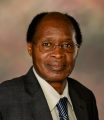
Overtoun Jenda is Professor of Mathematics and currently serves as an Assistant Provost for Special Projects and Initiatives at Auburn University. He previously served as Associate Provost for Diversity and Multicultural Affairs and Associate Dean of the College of Sciences and Mathematics at Auburn. In 2020, Jenda received the Presidential Award for Excellence in Science, Mathematics and Engineering Mentoring (PAESMEM).
Jenda is currently a Project Director for numerous programs focusing on STEM education, including the Institute for Strengthening Pathways and Research Knowledge in STEM, Louis Stokes Alliance for Minority Participation Program, US-Africa Collaborative Research Network in Mathematical Sciences, Masamu Advanced Study Institute and Research Workshops, Research Experience for Undergraduates in Algebra and Discrete Mathematics, and INCLUDES: The Alliance for Students with Disabilities for Inclusion, Networking, and Transition Opportunities in STEM.
Jenda received a PhD and MA in Mathematics from the University of Kentucky and a BS in Mathematics (with Distinction) from the University of Malawi. His areas of research are Homological Algebra and Commutative Algebra.

Tyler Kleykamp is a Fellow at Georgetown University’s Beeck Center for Social Impact + Innovation and Director of the State Chief Data Officers Network. Tyler was the State of Connecticut’s first Chief Data Officer (CDO) and one of the first state Chief Data Officers in the nation. A geographer by training, most of Tyler’s career has been in Connecticut state government including positions with the Department of Public Health, Office of Policy and Management, and the Governor’s Office.
In his role as CDO Tyler led Connecticut’s efforts to use data to enhance the efficiency and effectiveness of state programs, policies, and services. He oversaw data analytics and transparency master planning, leveraging open source tools and technology to create cost effective and scalable solutions to solve some of Connecticut’s most intractable data challenges.
In 2016, Tyler was the recipient of the U.S. Open Data Institutes’ “Open Data Pioneer” award and was named a “Data and IT Innovator” by Route Fifty. In 2019, Tyler was named one of Government Technology’s “Top 25 Doers, Dreamers, and Drivers.”

Alan Lee is Chief Technology Officer for Analog Devices, Inc. He develops and leads ADI’s long-term technology strategy for applications across the company’s end markets, working closely with ADI’s global business units and manufacturing operations to drive ADI’s competitive advantage. Previously, Alan was CEO of a privately held company creating technologies for high-frequency trading and quantitative financial analysis. Moreover, he developed expertise in large-scale, multinational engineering and technology projects through his previous work at Intel and IBM. In addition to serving as the chair of the Board of Trustees for the NSF Institute for Pure and Applied Mathematics at UCLA, Alan currently chairs the CTO Committee for the Semiconductor Industry Association (SIA) and the CTO Council for the Global Semiconductor Alliance (GSA). An ardent supporter of education, he also volunteers his time to multiple non-profit educational programs.

As a science and technology leader and strategist, Dr. Wen Masters’ career has spanned 30+ years with government, academia, research and development centers, and not-for-profit organizations, leading impactful science and technology research in applied mathematics, data science, information science and communications, machine learning and reasoning, image and signal processing, complex software systems, decision-making systems, and cybersecurity.
Currently, Wen is Vice President for Cyber Technologies at the MITRE Corporation, a not-for-profit organization that manages six federally funded research and development centers with a mission to solve problems for a safer world. In this role, Wen drives MITRE’s cybersecurity strategy, champions for MITRE’s cybersecurity capabilities, and oversees MITRE’s innovation centers in cyber solutions, cyber operations and effects, cyber infrastructure protection, and software engineering. These centers comprise a team of 1,200 professionals developing innovative technologies that address the nation’s toughest cyber challenges to deliver capabilities for sponsors and public.
Before joining MITRE, Wen was Deputy Director of Research at Georgia Tech Research Institute. She oversaw research in data science, information science, communications, computational science and engineering, quantum information science, and cybersecurity. She also co-led the Commission on Research Next initiative, developing a roadmap and strategy for Georgia Tech’s research enterprise.
Prior to Georgia Tech, Wen spent more than two decades as a federal government civilian and a member of the Senior Executive Service of America at the Office of Naval Research (ONR) and the National Science Foundation (NSF). At NSF, she served as the Lead Program Director for the Math Priority Area and a Managing Director for two Mathematical Sciences Institutes. At ONR, she led the Navy’s Integrated Science and Technology research and development portfolio in applied mathematics, computer science and engineering, information science, communications, machine learning and artificial intelligence, electronics, and electrical engineering, as well as their applications for warfighting capabilities and national security. For the impact of her efforts, the Navy honored Wen with many awards, including the Distinguished Civilian Service Medal, the highest honorary award given by the Secretary of the Navy.
Before her long career in the federal government, Wen worked at the Jet Propulsion Laboratory in Pasadena, California where she was responsible for orbit determination for NASA’s deep space exploration missions, including Magellan, Galileo, and Cassini.
Wen is a member of the National Academy of Sciences Naval Studies Board, the AIAA Domain Leadership Coalition, and Board of Directors of the Advanced Cyber Security Center.
Wen holds bachelor’s, master’s, and doctoral degrees in mathematics from the University of California, Irvine. Her publications include journal articles, conference proceedings, and a book.
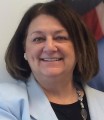
Nancy Potok is the former Chief Statistician of the United States. Until 2016, she was the Deputy Director and Chief Operating Officer (COO) of the U.S. Census Bureau. She has more than 30 years of public, private, and nonprofit senior management experience. She was the COO of McManis & Monsalve Associates and the Senior VP and Director of the Economic, Labor and Population Studies Department at the University of Chicago National Opinion Research Center. Dr. Potok is also an adjunct professor at The George Washington University and an elected Fellow of both the National Academy of Public Administration (NAPA) and the American Statistical Association. She earned a PhD in Public Policy and Public Administration from The George Washington University.

C. Matthew Snipp is the Burnet C. and Mildred Finley Wohlford professor of sociology and the Vice Provost for Faculty Development, Diversity and Engagement at Stanford University. He is a demographer specializing in the racial composition of the United States. Snipp has written extensively about racial inequality, racial measurement, and the demography of American Indians as well as other groups. A current member of the Committee on National Statistics, he has served on numerous census-related panels for the National Academies of Science, Engineering and Medicine. In recent work, he has been engaged in two projects evaluating the quality of the 2020 census; one sponsored by the American Statistical Association and another under the aegis of the National Academies. He also serves on the Center for Disease Control’s Board of Scientific Counselors for the National Center for Health Statistics.

Tina Sung is the Vice President for Federal Executive Networks at the nonprofit, nonpartisan Partnership for Public Service. In this role, she leads the design, development and implementation of the Ready to Govern® program to onboard new political appointees and accelerate their understanding of how to get things done in government. She is also the creator of Ready to Serve, a one-stop resource for thousands of Americans interested in serving as a presidential appointee. She is a skilled facilitator and moderator of cross-sector executive roundtables to share best practices.
Sung works extensively at the political-career interface and brings to the Partnership years of multi-sector executive leadership experience. Her government experience includes key senior executive service positions in the Department of Health and Human Services and the Social Security Administration. She also served as Executive Director of the Federal Quality Institute in the Treasury Department. She was recruited out of federal service to be President and CEO of the American Society for Training and Development where she grew its global footprint and co-founded two companies.
Sung graduated cum laude from Princeton University and later completed Harvard University’s John F. Kennedy School of Government Program for Senior Managers and the Federal Executive Institute’s Leadership and Management Program. She was also a participant in the prestigious President’s Executive Exchange Program sponsored by the White House. Sung has a master’s in business dynamics, is a Certified Association Executive and a National Academy of Public Administration Fellow. She is a certified EQ 360 coach and is a member of the National Association of Corporate Directors.

Dr. Costis Toregas is the Director of the Cyber Security and Privacy Research Institute at The George Washington University, where he manages and conducts education, research and service projects in cybersecurity and privacy. He serves on many nonprofit boards both in the US and abroad on topics as varied as women in the workforce, ecological design for cities, student competitions for skill development and improved analytics for global sustainable development goals. He is a respected consultant to national governments and intergovernmental organizations, and a much sought-after speaker on the impact of technology in government and society. He received his PhD at Cornell University, where his early research pioneered graph theory optimization techniques applied to location theory, which he then deployed in hundreds of public safety agencies in North America. He is married to Catherine Chadley Toregas and has two children, Alexandra and Christopher.
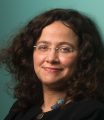
Mariel Vazquez is a Professor of Mathematics, of Microbiology & Molecular Genetics and Director of the Center for the Advancement of Multicultural Perspectives in Science (CAMPOS) at UC Davis. She is Fellow of the American Mathematical Society, inaugural Fellow of the Association for Women in Mathematics (AWM), the 2016 recipient of the Blackwell-Tapia Prize, a 2014 CAMPOS Faculty Scholar, the 2014 Mohammed Dahleh Distinguished Lecturer (UC Santa Barbara), a 2012 recipient of the U.S. Presidential Early Career Award for Scientists and Engineers (PECASE), and a 2011 NSF CAREER Awardee. The PECASE honored her “for excellent interdisciplinary and international research at the interface of mathematics and biology, and for creativity and dedication to recruiting, training, and mentoring, and helping students from underrepresented groups achieve their goals.”
Between 2014 and 2020 Vazquez served in the Human Resources Advisory Committee at MSRI, with the last three years as co-chair of the committee, ex-officio member of the Board of Trustees and member of the institute’s Steering Committee. She has done extensive service for professional societies (American Mathematical Society, the Society for Industrial and Applied Mathematics, the Association for Women in Mathematics) and served in the Advisory Board at the National Institute of Mathematical and Biological Synthesis (NIMBioS) and the SACNAS Math Taskforce. Notable engagements include plenary lectures at the 2018 SIAM National Meeting, the 2017 AWM Research Symposium, the 3rd PRIMA Congress (2017), the 2017 Hrabowsk-Gates-Tapia-McBay Lecture, the 2016 Blackwell-Tapia Conference, the 8th Australia-New Zealand Mathematics Convention (2014), the 2014 Mohammed Dahleh Distinguished Lecture, a 2014 Distinguished PIMS lecture in Mathematical Biology, and the 2010 BaMBA Conference. She has also given public lectures at multiple venues including the 2015 and 2017 National Math Festivals and the 2017 PRIMA Conference.
Vazquez obtained a B.Sc. in Mathematics from the National University of Mexico (UNAM) and a Ph.D. from Florida State University, where she worked with De Witt Sumners and was supported by fellowships from DGAPA UNAM and the Program for Mathematics and Molecular Biology/Burroughs Wellcome Fund. After receiving her doctorate, she held appointments as a Postdoctoral Fellow/Visiting Assistant Professor at UC Berkeley working with Rainer Sachs. While at Berkeley, Vazquez received an Exxon Mobil Project NExT Fellowship. She joined the faculty at San Francisco State University in 2005, and the UC Davis faculty in July 2014. Vazquez has held visiting positions in the Biochemistry Department at the University of Oxford (UK), the Molecular Biology Department CID/CSIC (Barcelona), and the Institute for Mathematics and its Applications, (Minneapolis, MN). Her research focuses on the study of topological entanglement in nucleic acids, such as those mediated by chromosome packing and by enzymatic interactions. The COVID-19 pandemic shifted some of the focus of her group to study the evolution of coronaviruses.
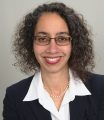
Talitha Washington, Ph.D., is a professor of mathematics at Clark Atlanta University and director of the Atlanta University Center Data Science Initiative, became the first person to ever be named both a 2021 Fellow of the American Mathematical Society (AMS) and a 2021 Fellow of the Association for Women in Mathematics (AWM) in the same year. The prestigious awards are recognition of Dr. Washington’s decades of work using mathematics and science to enable research, foster collaboration among diverse groups, inspire interdisciplinary exploration, and empower women and minorities.
“Mathematicians have always been interested in exploring abstract concepts and solving hard problems,” said Dr. Washington. “The solutions to today’s complex global challenges will be discovered through collaboration among a diverse community of mathematicians, scientists, and thought leaders from all areas of enterprise, service, and study. I am grateful to have been able to bring people together, expose more students to the field, and contribute my own research to our collective body of work. Being recognized by my mathematical peers through this esteemed honor is very gratifying and humbling for me.”